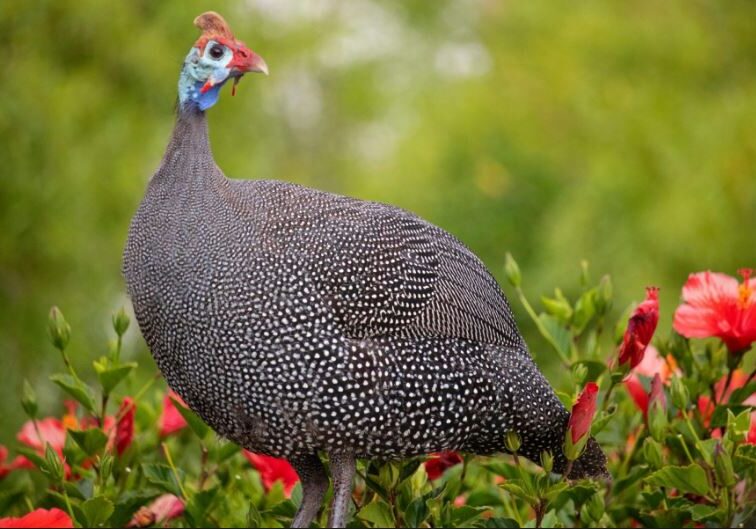
LET'S LEARN MORE ABOUT GUINEAFOWLS
Guineafowl (/ˈɡɪnifaʊl/) (or guineahen) are birds of the family Numididae in the order Galliformes. They are endemic to Africa and rank among the oldest of the gallinaceous birds. Phylogenetically, they branched off from the core Galliformes after the Cracidae (chachalacas, guans, and curassows) and before the Odontophoridae (New World quail).
An Eocene fossil lineage Telecrex has been associated with guineafowl; Telecrex inhabited Mongolia, and may have given rise to the oldest of the true phasianids, such as blood pheasants and eared pheasants, which evolved into high-altitude, montane-adapted species with the rise of the Tibetan Plateau. While modern guineafowl species are endemic to Africa, the helmeted guineafowl has been introduced as a domesticated bird widely elsewhere.
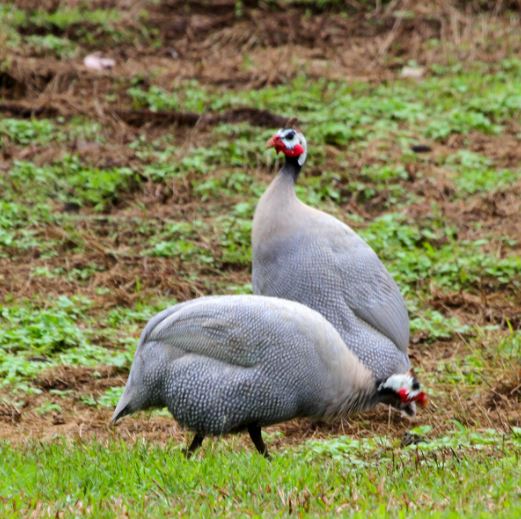
The DISCOVERY
ECOLOGY OF GUINEAFOWLS
Guineafowl travel behind herd animals and beneath monkey troops, where they forage within manure and on items that have fallen to the understory from the canopy. They play a pivotal role in the control of ticks, flies, locusts, scorpions, and other invertebrates. They pluck maggots from carcasses and manure.
Wild guineafowl are strong flyers. Their breast muscles are dark (aerobic metabolism), enabling them to sustain themselves in flight for considerable distances if hard-pressed. Grass and bush fires are a constant threat to them and flight is the most effective escape.
Some species of guineafowl, like the vulturine, may go without drinking water for extended periods, instead sourcing their moisture from their food. Young guineafowl (called keets) are very sensitive to weather, in particular cold temperatures.
ens are not known to be good mothers, but in the wild, the guinea hen's mate (a guinea cock) may help tend the young keets during the day by keeping them warm and finding food. Sometimes, more than one cock helps raise the young. Guineafowl (hens and cocks together) make good parents. During warm weather, the cock is unlikely to sit on the keets during the night (leaving that duty to the hen), but may help the hen keep them warm at night when temperatures drop below freezing.
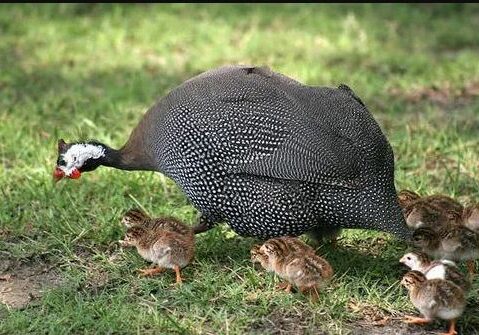
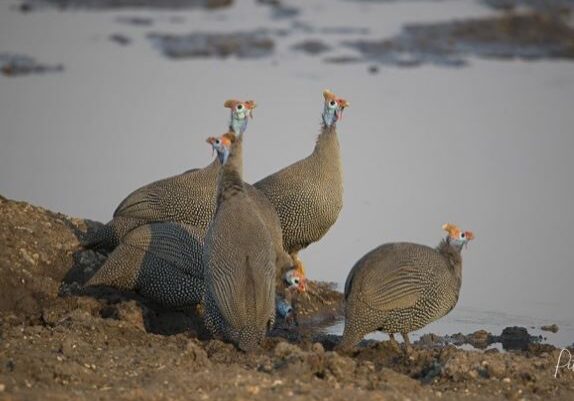
Guineafowl may be trained to go into a coop (instead of roosting in trees) when very young. Once hatched and ready to leave the brooder (around three weeks), they may be enclosed in a coop for at least three days so they learn where "home" is. When guinea parents (that already roost in a coop) raise their own keets, the hen sits on them outdoors at night, but then the parents teach the keets to also go into the coop in the evenings around three weeks of age.
Males and females have different calls, which can be used to differentiate between them. Unlike chickens (which generally do best with one rooster for a flock of hens), guineafowl do well with one cock for each hen.
Guineafowl have been shown to act as a deterrent to foxes. Due to the spread of Lyme disease from ticks, guineafowl are often kept because they will eat the ticks.
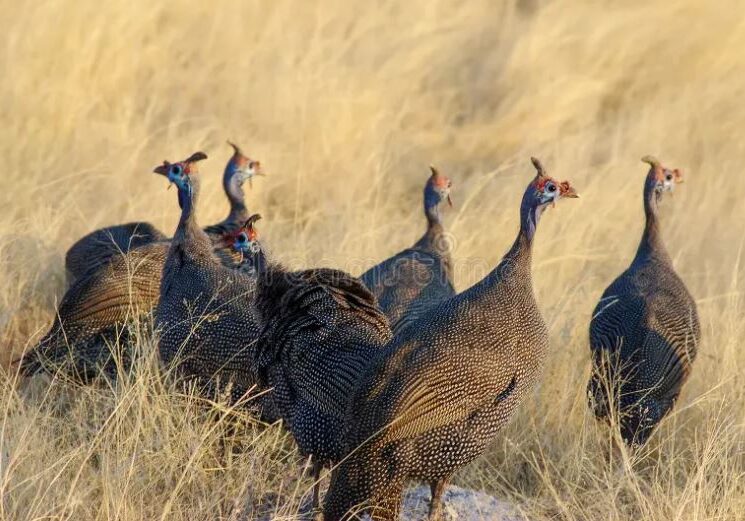

hISTORY AND ORIGIN
Guineafowl species are found across sub-Saharan Africa, some almost in the entire range, others more localized, such as the plumed guineafowl in west-central Africa and the vulturine guineafowl in north-east Africa. They live in semiopen habitats such as savanna or semideserts, while some, such as the black guineafowl, mainly inhabit forests. Some perch high on treetops.
The helmeted guineafowl has been introduced in East Africa, South America, the West Indies, the United States, Britain, and India, where it is raised as food or pets.
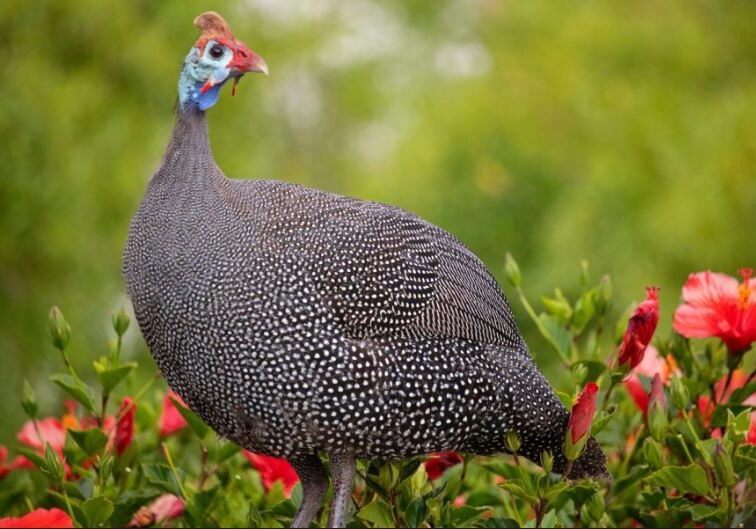
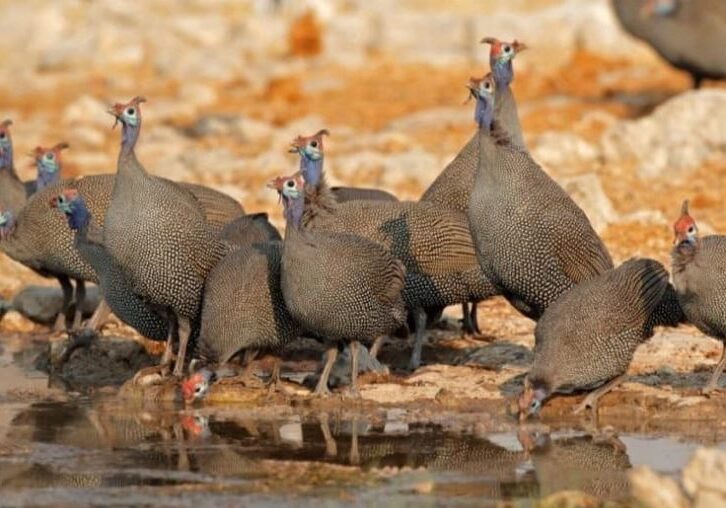
Do guineafowls make good pets?
Charming, fascinating birds – or noisy and disruptive? Guinea fowl often generate mixed emotions, but apart from die-hard enthusiasts, anyone who has lived near a bunch of guineas may well go with the second opinion. If you decide to keep them, there are a few notable differences to other poultry
Guinea fowl are not typically domesticated and can be flighty, but they can be entertaining and make good guard birds.
THEY'RE NATURE'S ALARM
Both male and female guinea fowl are very vocal. Their alarm calls are very loud and rival that of a rooster crowing.
OMG, they are so loud. Guineas are like an outdoor alarm system. They love to Don['t alert you to almost anything that startles them. Someone coming up the driveway, a fox, a visitor to your house, or even a car that may drive past the property.
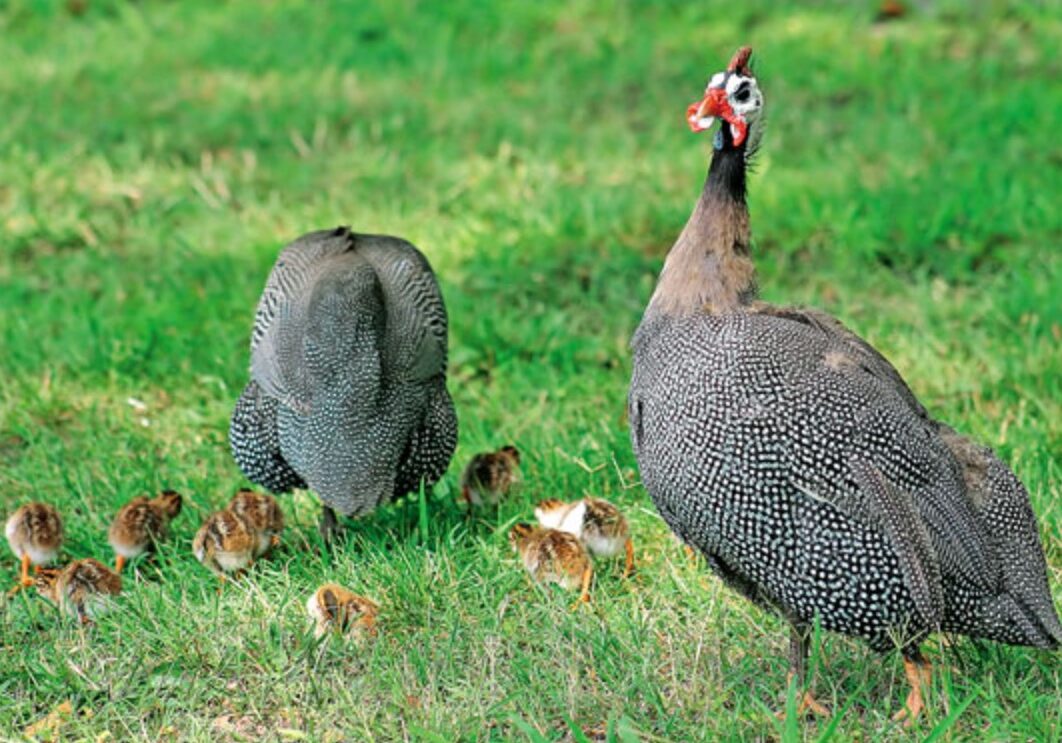

GUINEAFOWL AS GUARD DOGS.
GUINEAFOWL IN GARDENS.
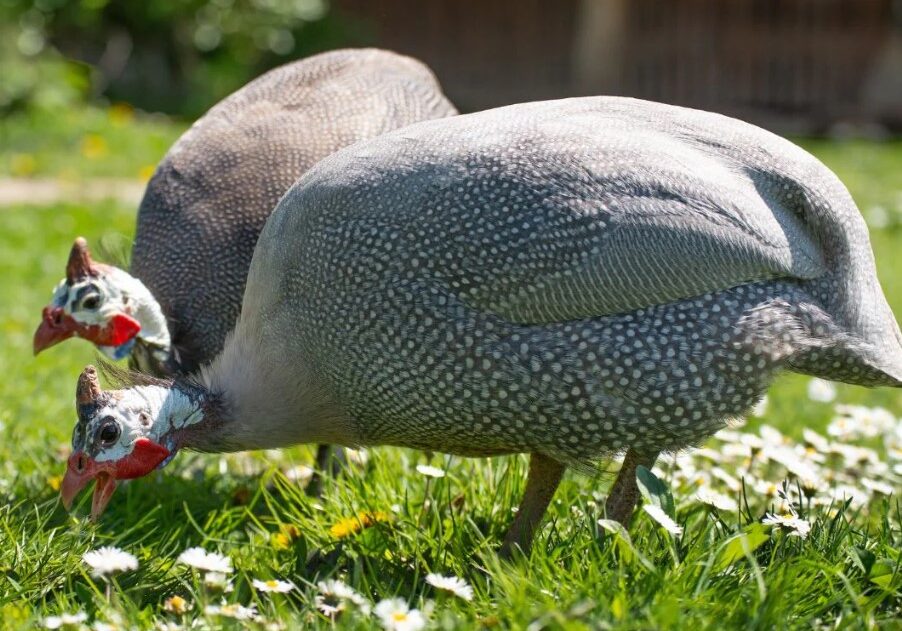
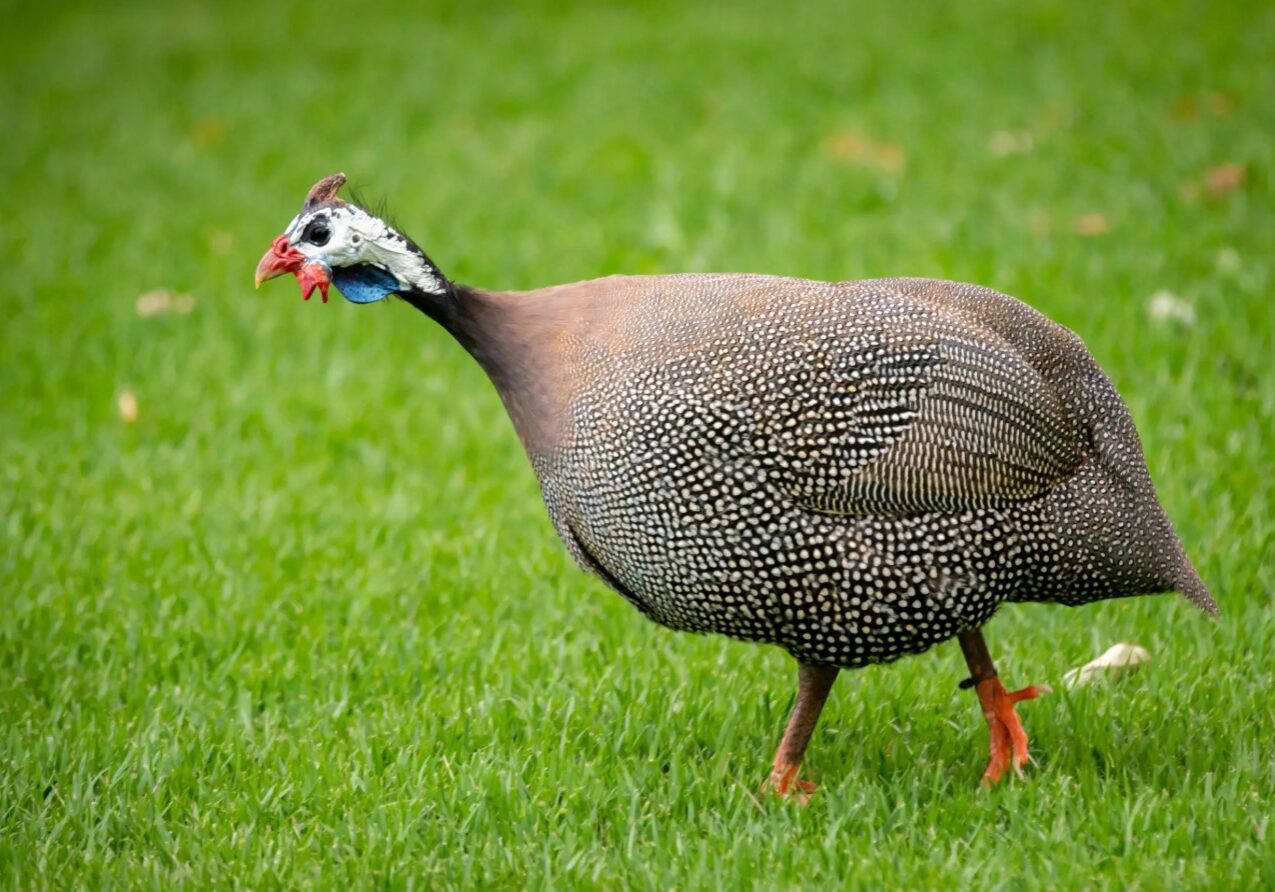
HOUSING GUINEAFOWL
Allow more space than for chickens and extra room on the perches, too – the higher the perches, the better they will like it. Either provide two pop-holes or make their doorway large enough to prevent bullies from keeping out the lower-ranking birds. Unlike chickens, the shyer guineas won’t wait their turn to get into the house but will fly upwards. Once a few have tasted the delights of outdoor life, the rest are likely to follow, and you will lose the battle.
Guinea fowl dislike going into dark places, so sticking a battery-powered cupboard light in their house will also be helpful.
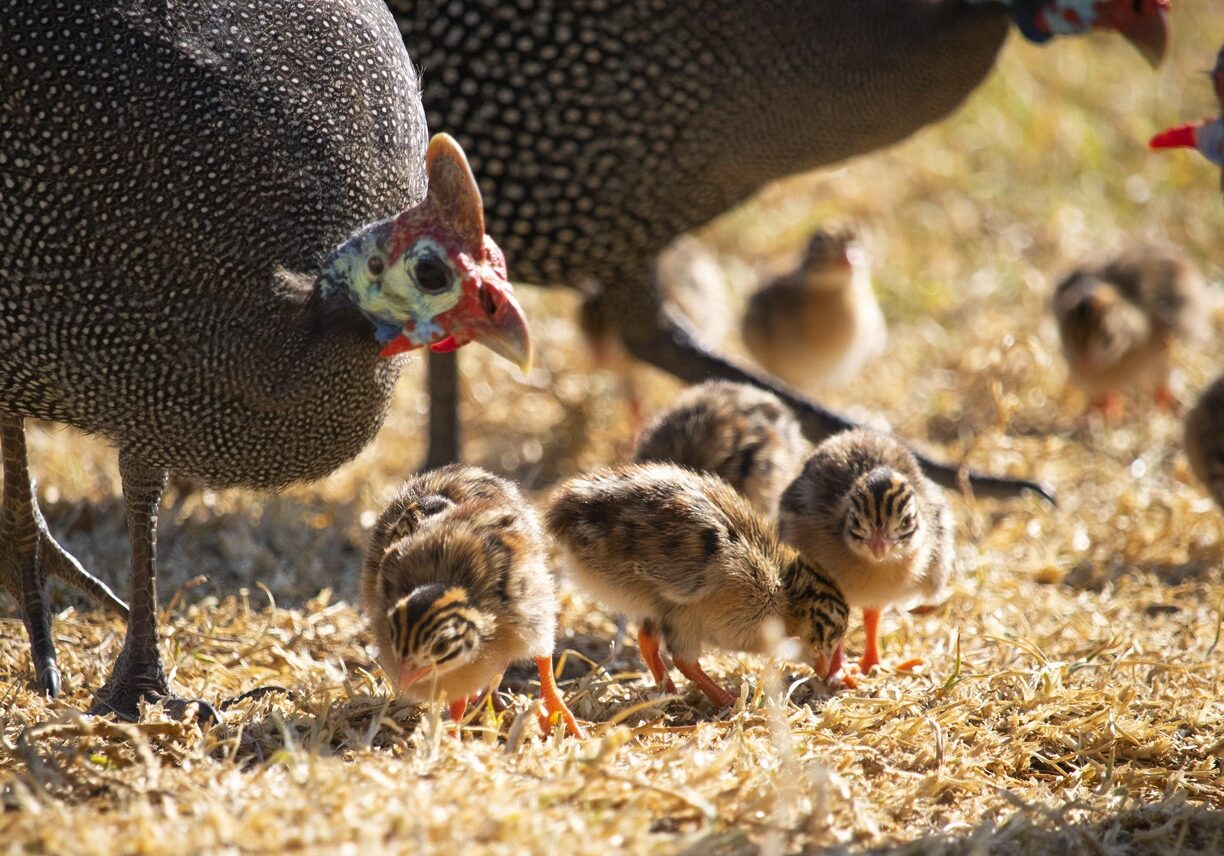
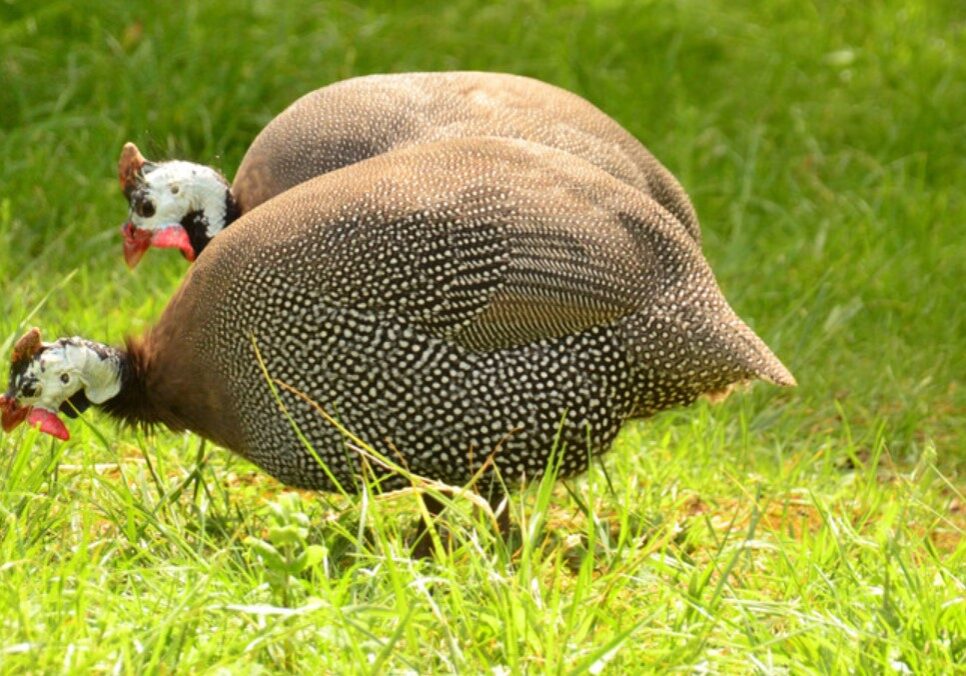
Nest-boxes aren’t necessary, as they won’t be used – guinea fowl like making their own secret nests. Your challenge is to find them!
An alternative is to keep the birds in a large run to have no choice but to live in safety. Give them as much space as possible, but roof the run, or they will fly out (unless you clip their wings). It is said that fertility drops when guineas are kept confined, so they are probably much happier if allowed free-range.
CARE AND FEEDING
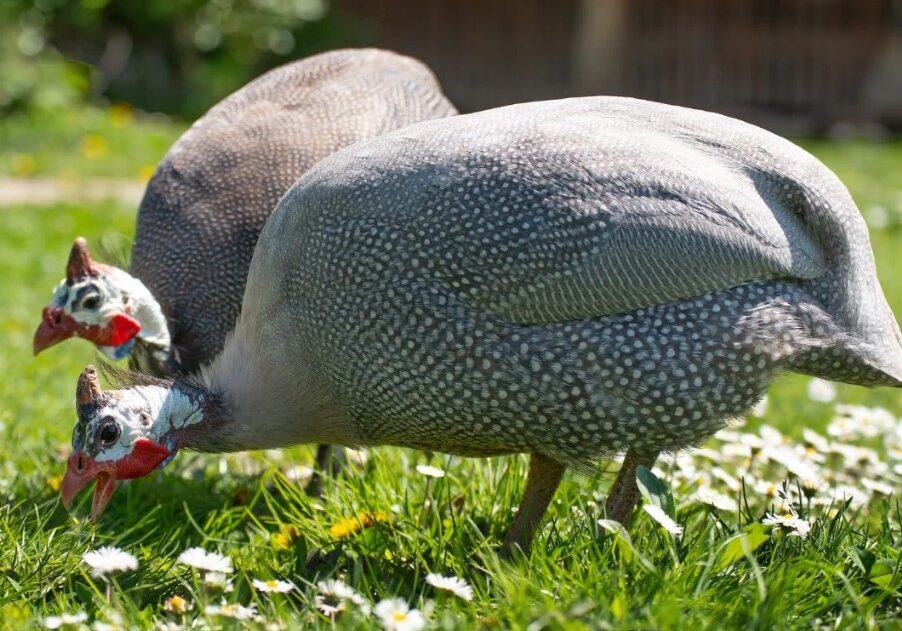
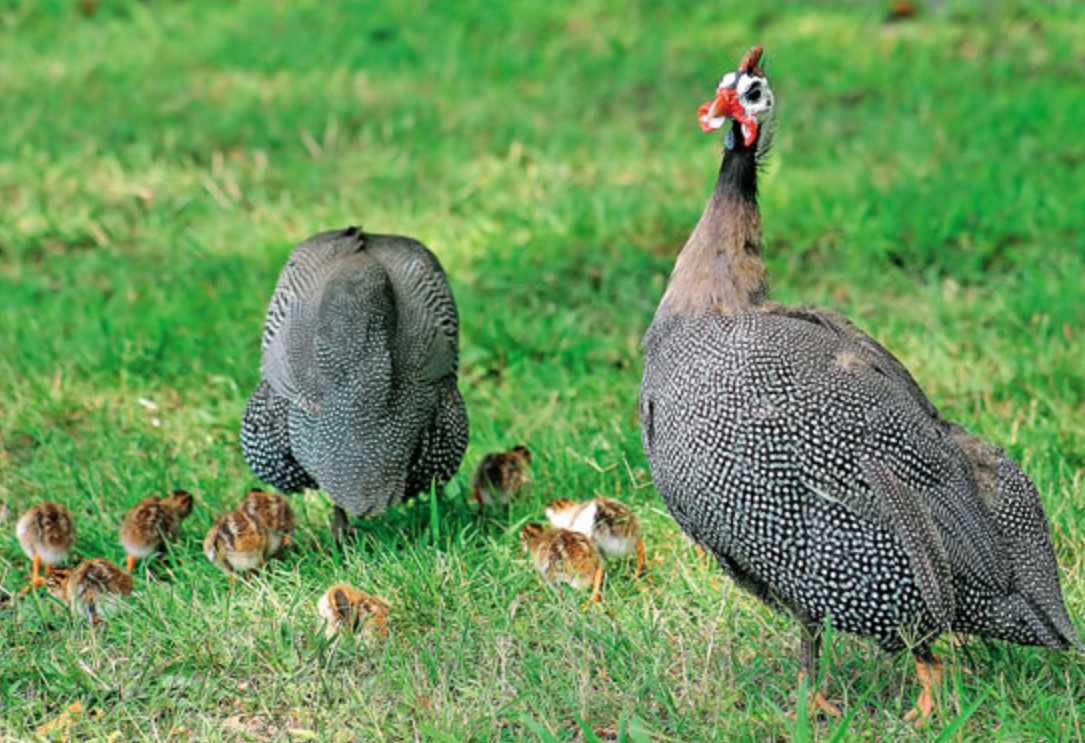
Guinea Hens:
The Ultimate Tick Exterminator
Guinea Hen Fowl love to eat ticks! Each Guinea Fowl will eat about 1000 ticks a day. We didn't care how loud or obnoxious they were! After one month of letting the guinea hens out to roam; the population of ticks went down significantly! Sounds almost too good to be true! Now when it is a bad tick year, we don't notice on our property because we have the upper hand on tick control!
Some people think Guinea Hens are loud and obnoxious. That is true. I wouldn't recommend getting Guinea Hens if you have close neighbors. They can make a horrible racket! I feel that the obnoxious sound is minor compared to the benefit they give to a homestead. They are guardians of a farmstead. They will alert the chickens if there a is flying predator. If a strange dog wanders over to your yard. They will let you know!
